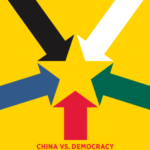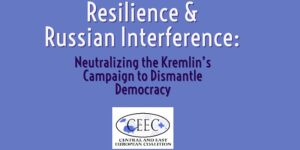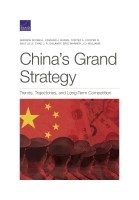 While not addressing U.S. President Joe Biden by name, China‘s Xi Jinping attacked the notion of a democratic counter-offensive against Beijing’s growing authoritarianism, Newsweek reports. During a pointed Davos speech, he made his stance on China’s policies clear through the subtext of his remarks, which included the line: “We should respect and accommodate differences, avoid interfering in other countries’ domestic affairs and solve disagreements through consultation and dialog.”
While not addressing U.S. President Joe Biden by name, China‘s Xi Jinping attacked the notion of a democratic counter-offensive against Beijing’s growing authoritarianism, Newsweek reports. During a pointed Davos speech, he made his stance on China’s policies clear through the subtext of his remarks, which included the line: “We should respect and accommodate differences, avoid interfering in other countries’ domestic affairs and solve disagreements through consultation and dialog.”
“To build cliques or start a new Cold War; to reject, threaten or intimidate others… will only push the world into division and even confrontation,” Xi added, in a likely reference to Biden’s call for a “coalition of democracies” to counter China.

Shanthi Kalathil
Strengthening democracy abroad is a priority for the Biden administration, evident in its commitment to hold a “summit of democracies” to galvanize support for fighting corruption, combating authoritarianism, and advancing human rights, notes analyst Patrick W. Quirk. The president has also elevated the issue within his National Security Council staff by creating a high-level coordinator for democracy and human rights [former NED staffer Shanthi Kalathil, right]. As it crafts its broader democracy agenda, the administration will identify priorities, metrics to assess progress, and guiding principles that inform how it will use available tools to accomplish objectives, he writes for Brookings.
One such guiding principle should be bolstering the “resilience” of democratic systems — that is, helping to make them better able to effectively deal with, recover from, and innovate following domestic and foreign challenges. To make democracies more resilient to domestic and foreign challenges, the Biden administration can do four things, he suggests:
- First, the U.S. should make protecting and supporting democracy abroad a central U.S. interest that directly influences policy and strategy for other functional issues — from combatting global fragility and forging regional trade policy to collaborating with allies to devise a more open and transparent digital domain….
- Second, the administration should continue the U.S. focus on strengthening the core institutions, practices, and norms that enable a society to respond and adapt to the spectrum of domestic and foreign threats. Strong democratic institutions with established accountability mechanisms are the most formidable line of defense against threats both domestic and foreign, whether from elite attempts to erode civic freedoms or foreign countries exerting malign influence….
 Third, the U.S. should dedicate greater effort to helping governments and civil society better detect, expose, and counter foreign authoritarian influence, whether from China or Russia. In many vulnerable countries there is limited understanding of the often-covert tactics the CCP or Kremlin employ to coerce, corrupt, and manipulate a range of actors to advance their strategic interests. Such understanding is critical to inoculating countries against the corrosion of their democratic institutions at a time when Beijing and Moscow are simultaneously popularizing authoritarianism through aggressive information operations and the export of digital surveillance and monitoring tools.
Third, the U.S. should dedicate greater effort to helping governments and civil society better detect, expose, and counter foreign authoritarian influence, whether from China or Russia. In many vulnerable countries there is limited understanding of the often-covert tactics the CCP or Kremlin employ to coerce, corrupt, and manipulate a range of actors to advance their strategic interests. Such understanding is critical to inoculating countries against the corrosion of their democratic institutions at a time when Beijing and Moscow are simultaneously popularizing authoritarianism through aggressive information operations and the export of digital surveillance and monitoring tools.- Finally, the Biden administration must focus on creating and implementing a positive vision of the future of democracy, one that embraces digital technology to advance democratic principles and global cooperation. The administration should focus on entrenching those ways in which digital technology can advance democratic participation: mandating open data, setting norms around public consultation for policy development, and creating and investing in participatory online deliberative democratic frameworks. Doing so will help make political systems more resilient.
The US must forge a concert of democracies to bring sustained multilateral pressure to bear on China, says a leading Asian strategist.
 The only way to preserve a stable regional balance of power is with a rules-based, democracy-led order, argues Brahma Chellaney, Professor of Strategic Studies at the New Delhi-based Center for Policy Research and Fellow at the Robert Bosch Academy in Berlin. Over the last year, this vision has spurred the region’s democracies to deepen their strategic bonds and inspired even the faraway democracies of Europe to implement supportive policies, he writes for Project Syndicate.
The only way to preserve a stable regional balance of power is with a rules-based, democracy-led order, argues Brahma Chellaney, Professor of Strategic Studies at the New Delhi-based Center for Policy Research and Fellow at the Robert Bosch Academy in Berlin. Over the last year, this vision has spurred the region’s democracies to deepen their strategic bonds and inspired even the faraway democracies of Europe to implement supportive policies, he writes for Project Syndicate.
Under the Biden administration’s leadership, countries must now build on this progress, creating a true concert of democracies capable of providing stability and balance in the Indo-Pacific, he observes. Biden seems to understand this, having made clear his intention to build a united democratic front to counter China.
Earlier this week, the Washington Post suggested that foreign policy is a good place to start finding bipartisan unity, an idea I support, adds American Progress analyst Brian Katulis. “We must stop politics at the water’s edge,” Senator Arthur Vandenberg of Michigan said at the dawn of the Cold War era, when he was the Republican head of the Senate Foreign Relations Committee and Democrat Harry Truman was President.
 But in today’s divided times with a media and politics that thrive on discord, that’s easier said than done. Besides, as historian Julian Zelizer points out in his book Arsenal of Democracy – the truism of politics stopping at the water’s edge was a false notion throughout the decades of the Cold War. Republicans and Democrats alike have tried to use national security to their advantage for years, he writes for the bipartisan Liberal Patriot (below).
But in today’s divided times with a media and politics that thrive on discord, that’s easier said than done. Besides, as historian Julian Zelizer points out in his book Arsenal of Democracy – the truism of politics stopping at the water’s edge was a false notion throughout the decades of the Cold War. Republicans and Democrats alike have tried to use national security to their advantage for years, he writes for the bipartisan Liberal Patriot (below).
Foreign policy debates are more open to a wider array of voices – and that’s a good thing overall. The barriers to entry are lower, and the diversity of perspectives would ideally make things better in terms of policy. But the sum isn’t greater than the individual parts for a few reasons, Katulis contends:
- First, the costs of how certain voices use their platforms are high – with ad hominem and other personal attacks displacing substantive disagreements over policy. Even some members of Congress and Congressional staff have jumped into the game by operating as little more than Twitter trolls on complicated national security issues…..
- Second, this mode of debate also destroys necessary relationship capital among policy experts and practitioners to build coalitions that get results in the real world.
- Third, it also spawns more dysfunction and division in America’s own policy landscape.
- Finally, this a dynamic that other countries around the world notice and in some cases seek to exploit to their own advantage. Friends in the world question America’s strategic reliability because of its divisions, and competitors relish the gridlock and dysfunction.
A bipartisan, pro-democratic initiative. What’s not to like? https://t.co/omoxhdh2rH
— Democracy Digest (@demdigest) January 26, 2021







